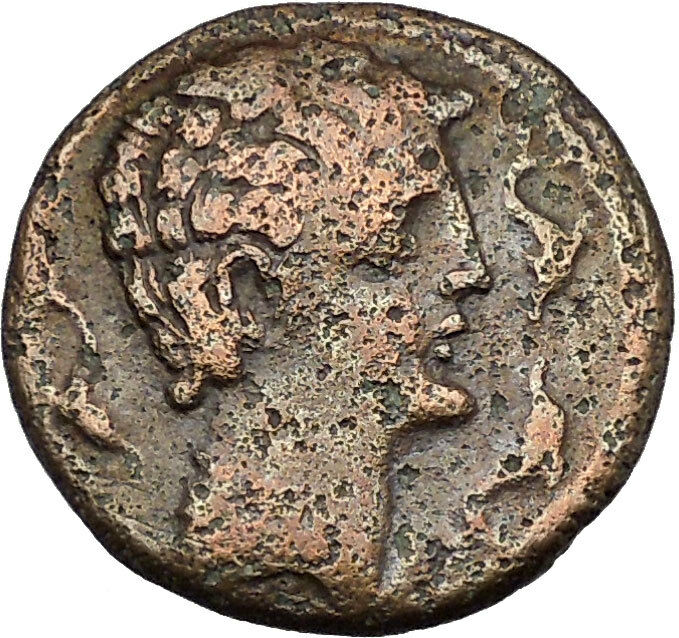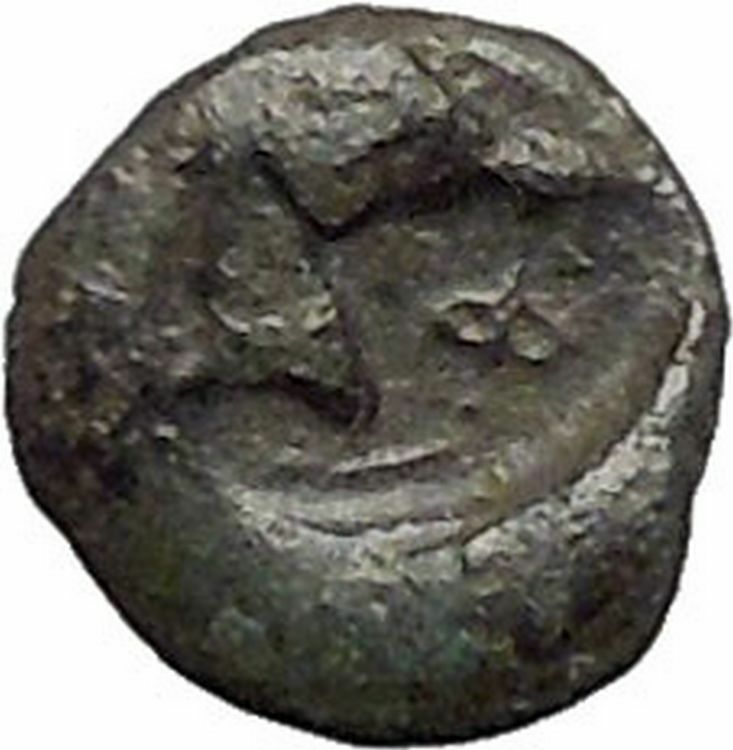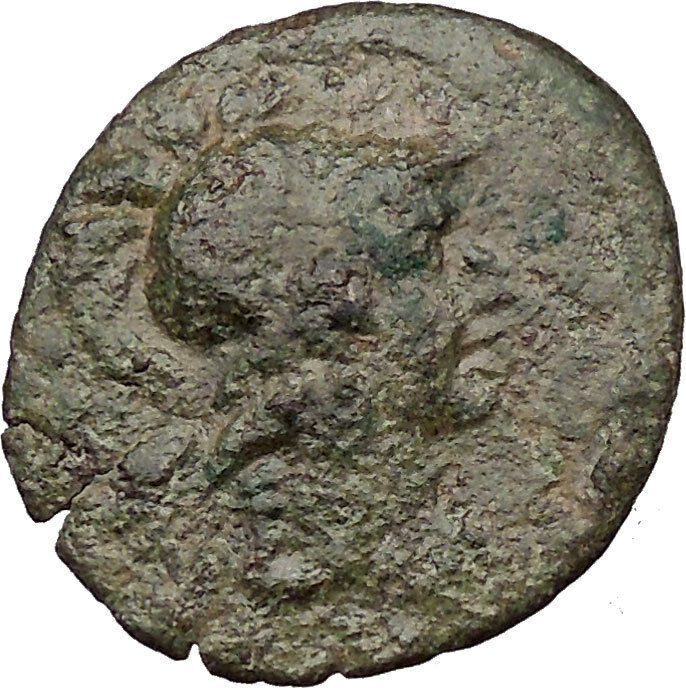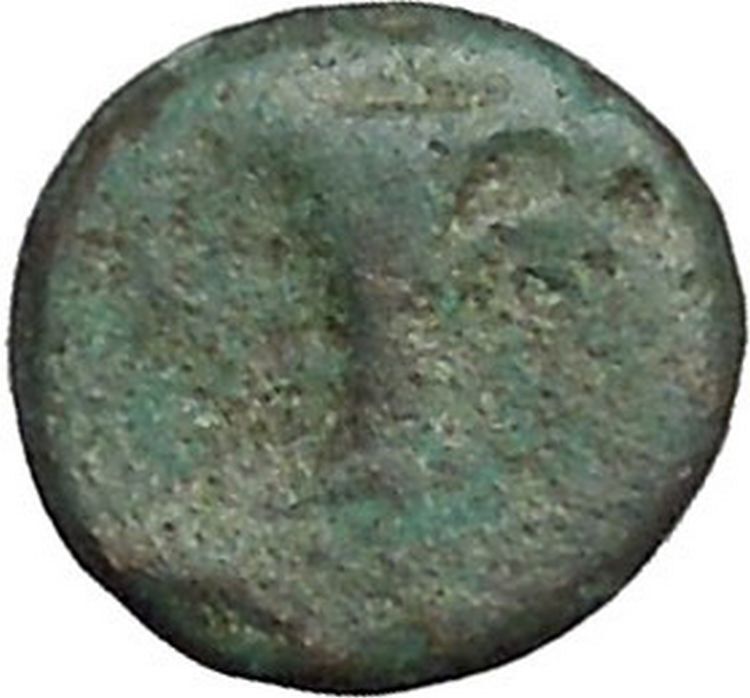|
Greek city of Ainos in Thrace
Bronze 17mm (2.76 grams) Struck circa 255-246 B.C.
Reference: HGC 3.2, 1290
Laureate head of Apollo right.
AINI/ON above and below goat standing right; pentagram (pentalpha) in field to right.
You are bidding on the exact item pictured, provided with a Certificate of Authenticity and Lifetime Guarantee of Authenticity.
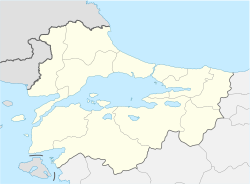 Enez is a town and a district of Edirne Province, in Thrace, Turkey. The pre-Turkish name of the town was Ainos (Greek: Αίνος), Latinized as Aenus. The mayor is Özkan Günenç (CHP). The population is 10,886 as of 2018. Enez is a town and a district of Edirne Province, in Thrace, Turkey. The pre-Turkish name of the town was Ainos (Greek: Αίνος), Latinized as Aenus. The mayor is Özkan Günenç (CHP). The population is 10,886 as of 2018.
The mythical and eponymous founder of the ancient Greek city of Ainos/Aenus was said to be Aeneus, a son of the god Apollo and father of Cyzicus. Another mythical ruler, named Poltys, son of Poseidon, entertained Heracles when he came to Aenus. On that occasion, Heracles slew Poltys’ insolent brother Sarpedon on the beach of Aenus. According to Strabo, Sarpedon is the name of the coastline near Aenus, so both Poltys and Sarpedon would appear to be eponyms.
The Suda writes that the first settlers were Greeks from the Alopeconnesus and later more settlers came from Mytilene and Kyme. Harpocration, writes the same.
Pseudo-Scymnus write that the city had Aiolian settlers from Mytilene.
Presumably because of the similarity of the names, Virgil has Aeneas found the city after the destruction of Troy. A surer sign of its antiquity is in the Iliad, where Homer mentions that Peirous, who led Troy’s Thracian allies, came from Aenus.
Herodotus (7.58) and Thucydides say Aenus was an Aeolian colony. Scymnus Chius (696) says the colonists came from Mytilene on Lesbos Island, while Stephanus Byzantius says they came (also?) from Cumae. According to Strabo (p. 319), a more ancient name of the place was Poltyobria and Stephanus says it was also called Apsinthus.
As a subject ally of Athens, Aenus provided peltasts at the Battle of Sphacteria in 425 BC and sent forces to the Sicilian Expedition in 415.
During the Hellenistic period Ainos changed hands multiple times. After a spell of Macedonian rule, the city passed to Lysimachos of Thrace after the death of Alexander the Great, and was subsequently taken by the Seleucid Empire after his defeat and death at the Battle of Corupedium in 281 BC. It then became a possession of the Ptolemaic Kingdom, when it was captured as a result of the Third Syrian War around 246 BC, it was subsequently captured by Philip V of Macedon in 200 BC, and later of Antiochus the Great, who lost it to the Romans in 185 BC, whereupon the Romans declared Aenus a free city. It was still a free city in the time of Pliny the Elder.
|




 Enez is a town and a district of Edirne Province, in Thrace, Turkey. The pre-Turkish name of the town was Ainos (Greek: Αίνος), Latinized as Aenus. The mayor is Özkan Günenç (CHP). The population is 10,886 as of 2018.
Enez is a town and a district of Edirne Province, in Thrace, Turkey. The pre-Turkish name of the town was Ainos (Greek: Αίνος), Latinized as Aenus. The mayor is Özkan Günenç (CHP). The population is 10,886 as of 2018.

